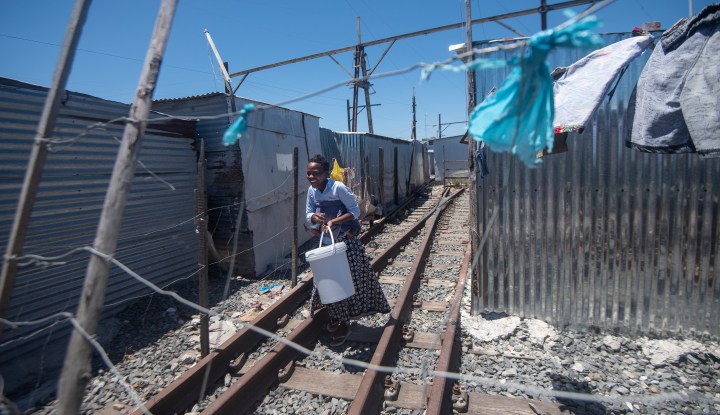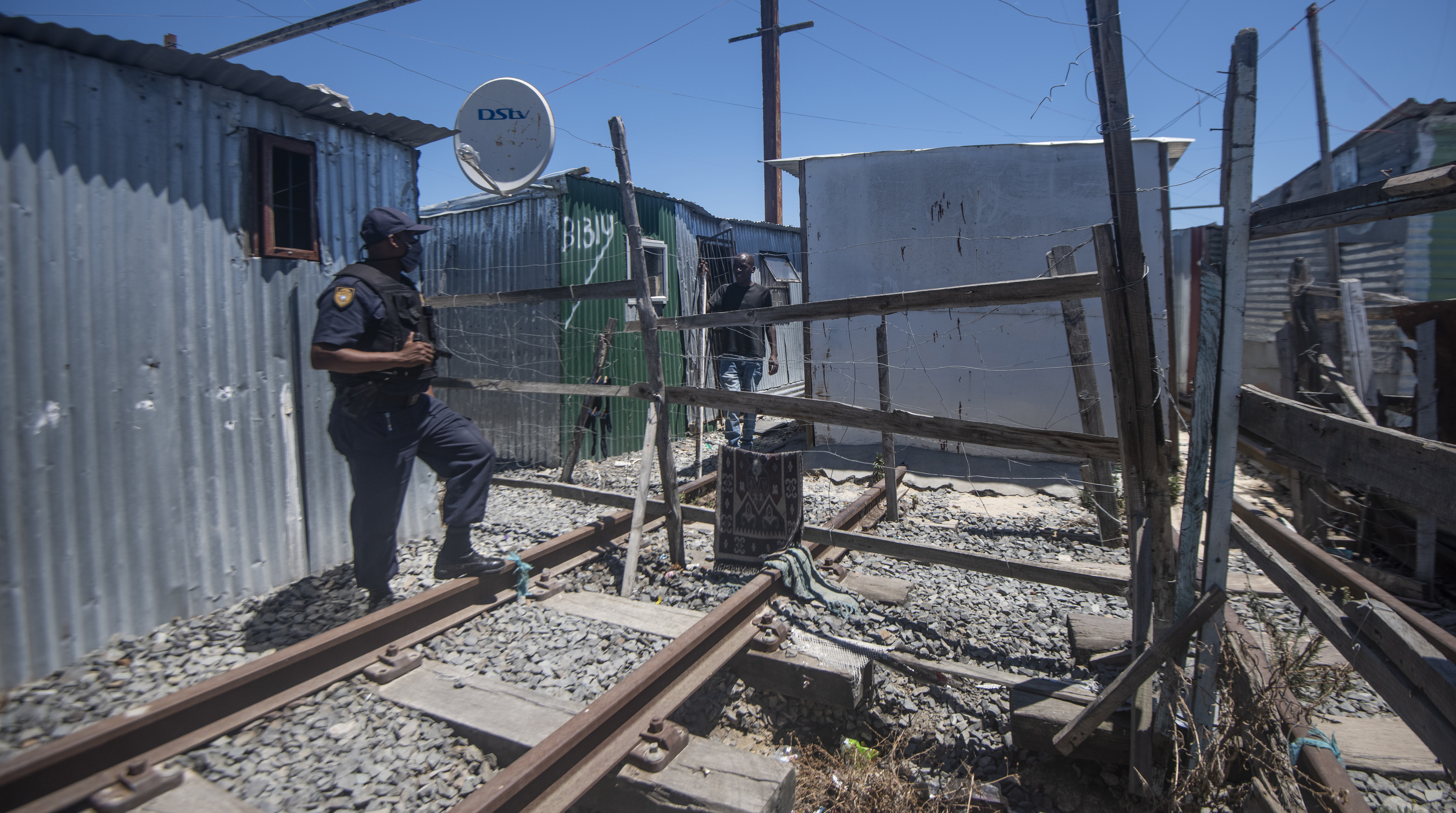DERAILED
Scopa grills City of Cape Town on relocation of Prasa’s Central Line occupiers

While the recovery of the Central Line – a key stretch of railway line between the Cape Town CBD and many Cape Flats suburbs – is under way, stakeholders appeared in Parliament and some MPs questioned the city’s commitment to assisting with the relocation of occupiers, a key challenge in getting trains to the neediest.
A big question coming out of Tuesday 27 February’s Standing Committee on Public Accounts (Scopa) meeting in Parliament was the City of Cape Town’s commitment to the relocation of those who have for months occupied parts of the Central Line, a key rail link between working-class suburbs and central Cape Town.
Deputy Mayor Eddie Andrews said the city was on board with relocation efforts, but some committee members questioned this after complaints were raised about the limited resources provided for people who previously lived on the train tracks and were now in the process of being temporarily relocated.
Relocating those who occupied the line would allow trains to run to working-class suburbs such as Khayelitsha and Mitchells Plain.
However, the committee heard that there were also issues regarding land use applications for the relocation.
The Central Line – which stretches from the CBD to suburbs such as Langa, Nyanga, Philippi, Mitchells Plain and Khayelitsha – is run by the Passenger Rail Agency of South Africa (Prasa), but in November 2019 the line was closed due to sustained arson, vandalism and theft.

A Prasa Protection Services official inspects an informal settlement on the Central Line in Philippi, Cape Town in 2022. (Photo: Brenton Geach)
Then came the Covid lockdowns and people began moving on to the tracks in areas such as Phillipi and Langa. This prevented the recovery of the railway post-Covid, as well as various internal problems faced by Prasa, including the cancellation of security contracts and leadership challenges.
Read more in Daily Maverick: Crumbling Philippi station on Cape Town’s Central Line highlights Prasa’s enormous challenges
On Tuesday, Prasa, with the Human Settlements Department, the Housing Development Agency and the City of Cape Town were called to Scopa for an update on the relocation process.
Making introductory remarks, committee chairperson Mkhuleko Hlengwa said, “These informal settlements along the rail reserve have rendered Prasa incapable of continuing its commuter services and operations on the Central Line.”
Thus far, 1,206 informal households have been temporarily relocated to sites between Nyanga and Phillipi; 856 of those households have been relocated to the Bhekela Site in Philippi near Stock Road station.
This is a crucial step to allow for the resumption of commuter rail.
According to Prasa, the Bhekela Site site has 90 toilets installed. These are serviced four times a week, according to the City of Cape Town’s deputy mayor. The site, situated along a busy transport hub, is fenced off and water is provided to the community via tankers.
After a protest last week, several toilets were installed.
Committee member Veronica Mente (EFF) said if there were 90 toilets for 1,200 households, which could have five members each, that meant there was one toilet for 80 people.
“That cannot be human,” she said.
Andrews said more toilets could be provided if needed. In addition, he said he would provide details to stakeholders about who should be contacted about delays in water and sanitation.
Committee member Bheki Hadebe, a former City of Cape Town councillor for the ANC, questioned the lack of electricity supply to the Bhekela Site.
Andrews said the city could not provide electricity since the site was privately owned and “any responsibility would be on the owner”. This elicited shrugs from the committee.
Land use applications
More problems started to emerge when Prasa made a startling announcement: it had been told it would need to make a land use application to the city for its Bhekela site, where hundreds of households had already been moved. According to Prasa officials, it had been unaware of this.
Andrews said that context was important and that when it came to basic structures, there should be no confusion or land use contraventions.
“We are asking for applications to regularise what’s happening,” he said.
Responding to whether the city was committed to relocating those occupying the Central Line, Andrews noted that the city and Prasa signed an implementation protocol for the relocation.
“The fact that we are signatories means we are committed.”
Several MPs raised concerns about a lack of communication between Prasa and the city, which led Sakhumzi Somyo (ANC) to say: “There should have been correspondence to the committee if there had been hurdles.”
While the relationship between the stakeholders had taken up most of the meeting, MPs all agreed that progress had been made with the recovery of the train lines and the relocation of people.
According to Prasa Group CEO Hishaam Emeran, the agency expected the full operation of the Central Line to places such as Kapteinsklip (Mitchells Plain) and Chris Hani (Khayelitsha) to resume by mid-2024.
Scopa will conduct another oversight visit to the Central Line on 20 March. DM

















What I can’t understand is where the occupiers of the railway lines got their services from? The same number of households had to use toilets, get electricity and water from somewhere.
And WHY are there 5 occupants per household. Are these people giving birth to children who are going to need more free homes in 20 years? Surely this is not sustainable. How about an education program to explain how life really works?